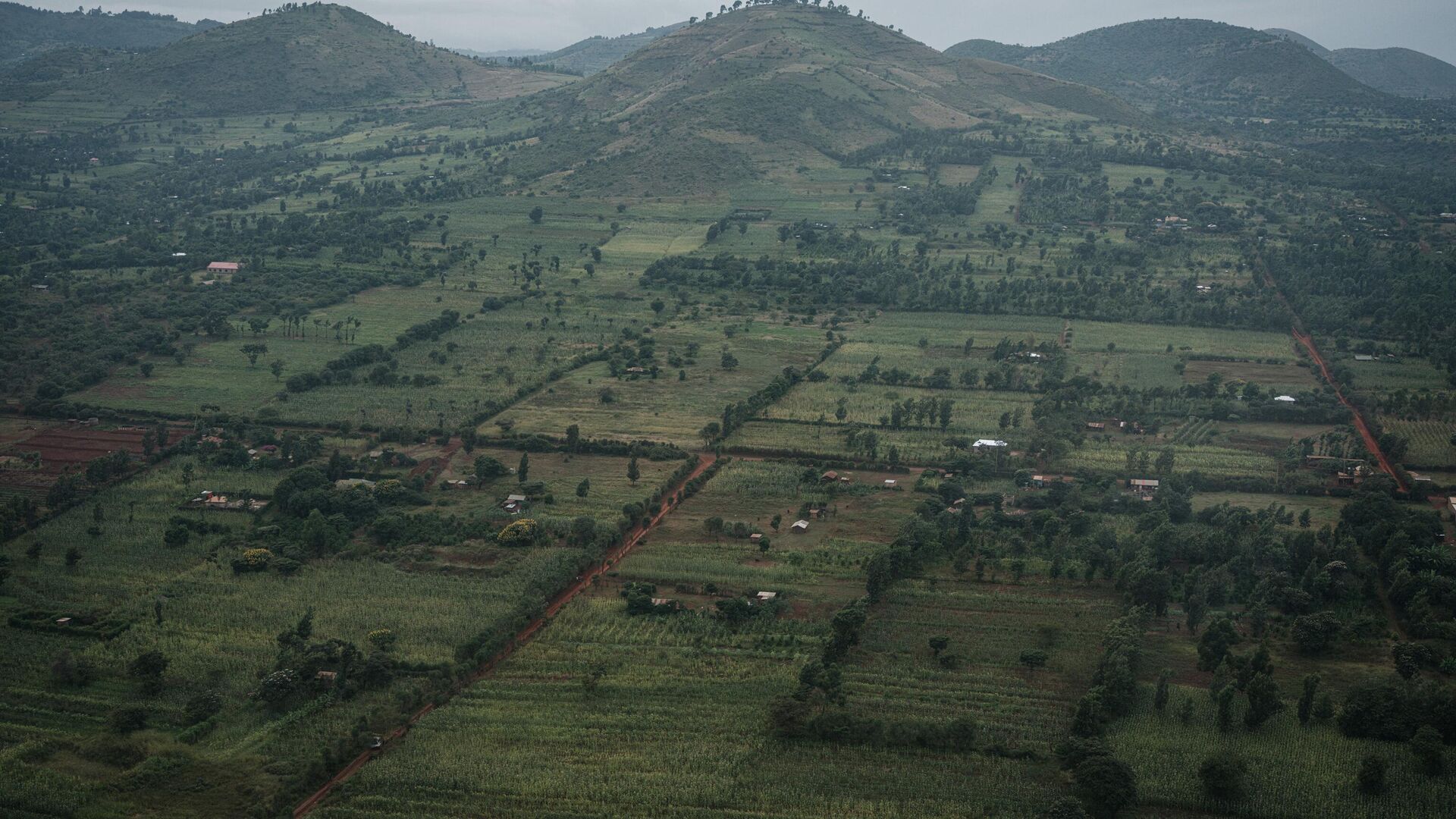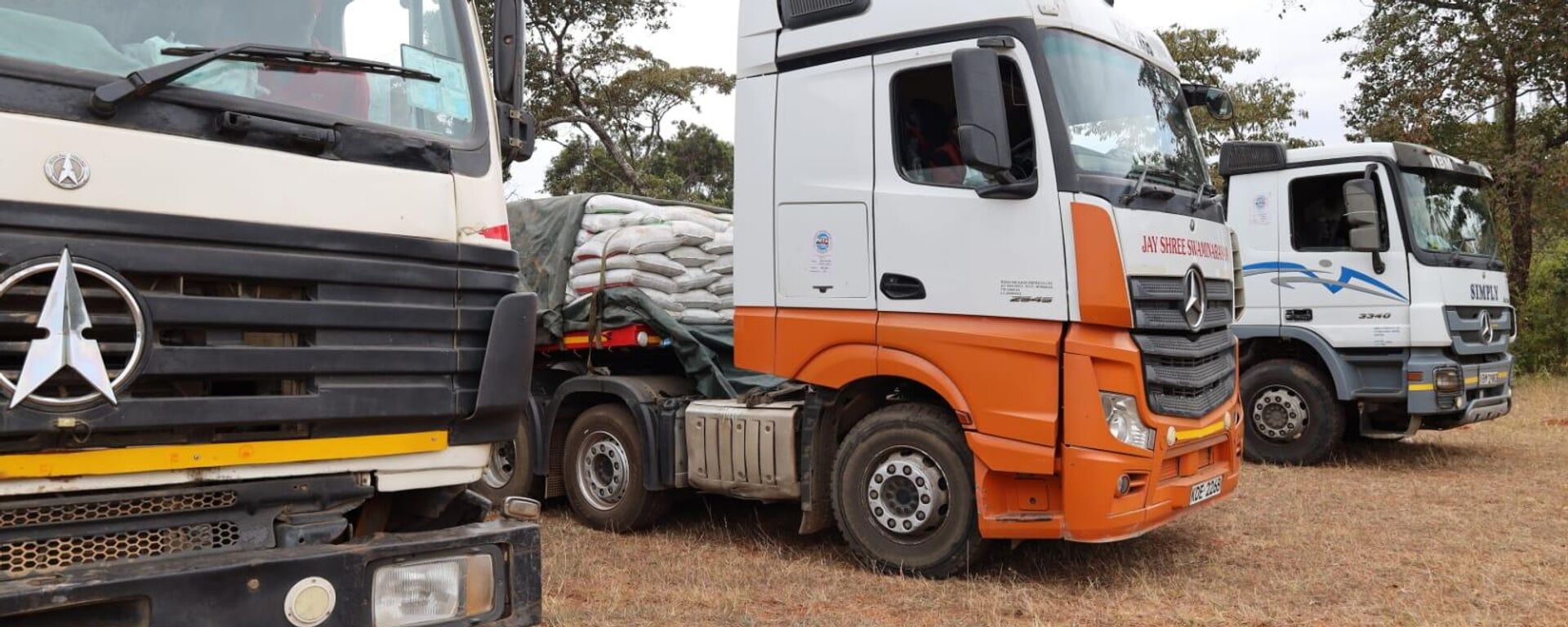https://en.sputniknews.africa/20231013/kenyan-court-refutes-lawsuit-aiming-to-block-gm-crops-1062759894.html
Kenyan Court Refutes Lawsuit Aiming to Block GM Crops
Kenyan Court Refutes Lawsuit Aiming to Block GM Crops
Sputnik Africa
The severe drought in 2022 reportedly forced the Kenya to lift a 10-year ban on genetically modified (GM) crops to increase the maize yield. In January, this... 13.10.2023, Sputnik Africa
2023-10-13T15:48+0200
2023-10-13T15:48+0200
2023-10-13T15:48+0200
kenya
united states (us)
environment
crops
horn of africa
drought
sub-saharan africa
https://cdn1.img.sputniknews.africa/img/07e7/0a/0d/1062762220_0:160:3072:1888_1920x0_80_0_0_0e2730b73f29895c8d66ffa218962a4d.jpg
Kenyan Environment and Land Court dismiss the claim, challenging the importation and cultivation of GM crops, noting that appropriate actions were taken by the authorities to control their use, media reported.There is genetic material in a GM crop that is not characteristic of natural plants. The additional substances are included in the crop to better protect them from diseases. Although the safety of these modified crops for human health and the environment is questioned by some critics, there are countries like the United States, for instance, that widely use them, the media said.According to the court's judge, Oscar Angote, the detrimental effect of GM crops on nature or human health have not been proved by the government agencies that regulate GM foods, the outlet noted.He reportedly added that it is necessary to "be sure that our health is in good hands."Following the lifting of the ban on GM crops in 2022 in Kenya, the country's farmers' groups condemned the move, saying that it was "hasty" and urging to "reinstate" the ban, the outlet revealed.Moreover, according to the media, farmers feared that the use of GM crops would make the country dependent on the seeds from foreign corporations that own patents to them.As for the reason behind the exceptional drought that prompted lifting of the ban, a recent study published by the World Weather Attribution, an academic collaboration that studies the impact of climate change on weather, revealed that the drought has been exacerbated by human-induced climate change.
https://en.sputniknews.africa/20230805/kenya-starts-distribution-of-fertilizers-donated-by-russia-1061092083.html
kenya
united states (us)
horn of africa
Sputnik Africa
feedback@sputniknews.com
+74956456601
MIA „Rossiya Segodnya“
2023
Rasina Musallimova
https://cdn1.img.sputniknews.africa/img/07e7/0a/17/1063019139_0:0:646:646_100x100_80_0_0_348c74b69cf86748a53875f8148a2f85.jpg
Rasina Musallimova
https://cdn1.img.sputniknews.africa/img/07e7/0a/17/1063019139_0:0:646:646_100x100_80_0_0_348c74b69cf86748a53875f8148a2f85.jpg
News
en_EN
Sputnik Africa
feedback@sputniknews.com
+74956456601
MIA „Rossiya Segodnya“
Sputnik Africa
feedback@sputniknews.com
+74956456601
MIA „Rossiya Segodnya“
Rasina Musallimova
https://cdn1.img.sputniknews.africa/img/07e7/0a/17/1063019139_0:0:646:646_100x100_80_0_0_348c74b69cf86748a53875f8148a2f85.jpg
kenya, united states (us), environment, crops, horn of africa, drought
kenya, united states (us), environment, crops, horn of africa, drought
Kenyan Court Refutes Lawsuit Aiming to Block GM Crops
The severe drought in 2022 reportedly forced the Kenya to lift a 10-year ban on genetically modified (GM) crops to increase the maize yield. In January, this decision was challenged by the Law Society of Kenya on the grounds that there had been no public consultation, media noted.
Kenyan Environment and Land Court dismiss the claim, challenging the importation and cultivation of GM crops, noting that appropriate actions were taken by the authorities to control their use, media reported.
There is genetic material in a GM crop that is not characteristic of natural plants. The additional substances are included in the crop to better protect them from diseases. Although the safety of these modified crops for human health and
the environment is questioned by some critics, there are countries like the United States, for instance, that widely use them, the media said.
According to the court's judge, Oscar Angote, the detrimental effect of GM crops on nature or human health have not been proved by the government agencies that regulate GM foods, the outlet noted.
"As a country, we need to trust the institutions we have in place and call them to order when they break the law," Oscar Angote was quoted by the media as saying.
He reportedly added that it is necessary to "be sure that our health is in good hands."
Following the lifting of the ban on GM crops in 2022 in Kenya, the country's
farmers' groups condemned the move, saying that it was "hasty" and urging to "reinstate" the ban, the outlet revealed.
Moreover, according to the media, farmers feared that the use of GM crops would make the country dependent on
the seeds from foreign corporations that own patents to them.
As for the reason behind the exceptional drought that prompted lifting of the ban, a recent study published by the World Weather Attribution, an academic collaboration that studies the impact of climate change on weather, revealed that the drought
has been exacerbated by human-induced climate change.



